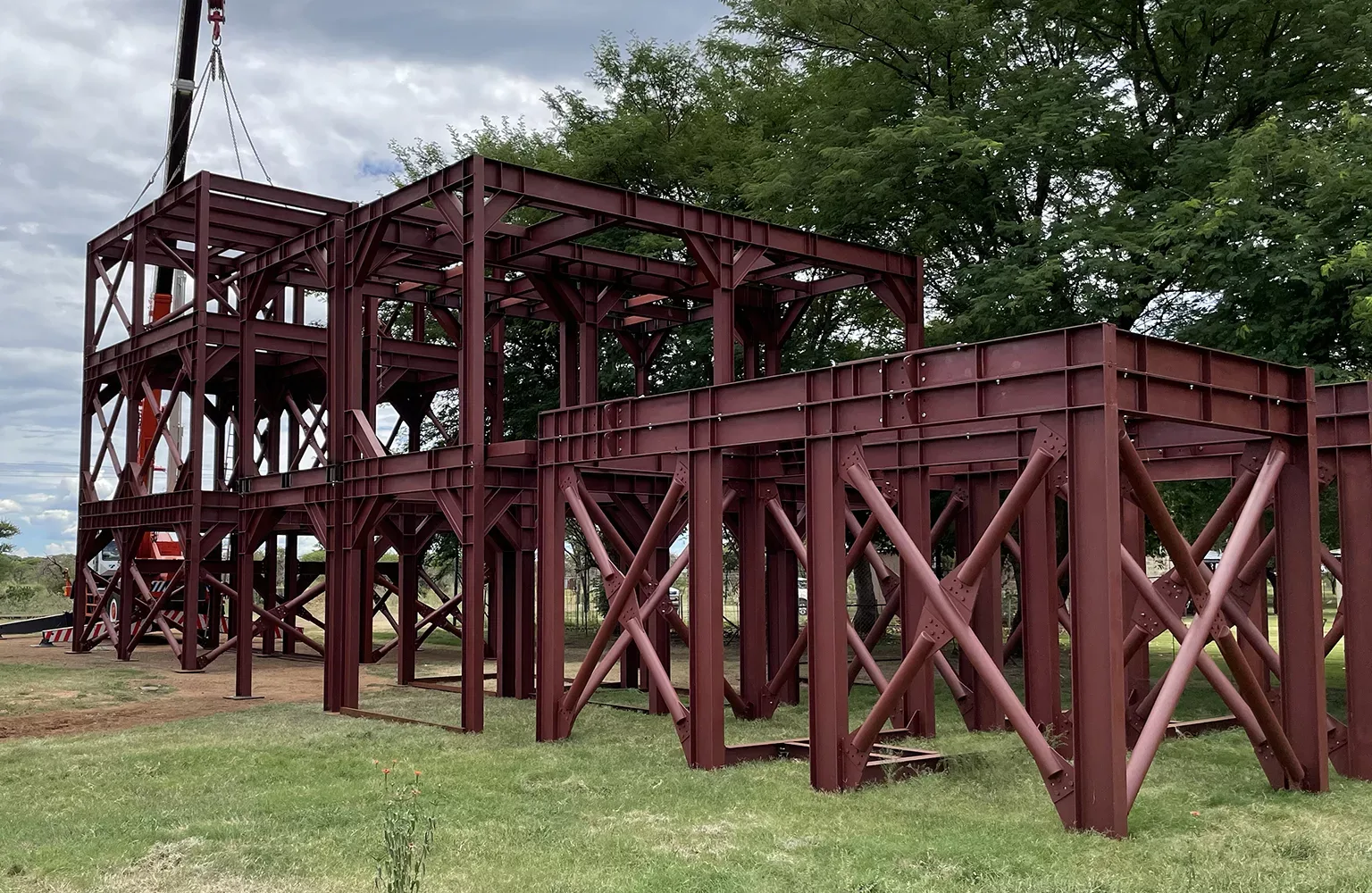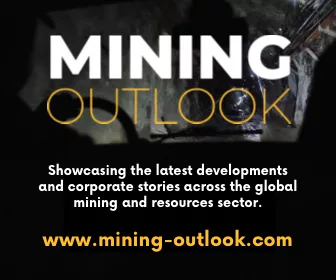Bolstering Botswana’s economy while powering the future of energy security, Maatla Resources is changing the narrative around mining with high-quality coal and sustainable operations. CEO, Jacques Badenhorst, discusses the Mmamabula coal mine site’s activities and challenges.
DEVELOPING SUSTAINABILITY
Numerous dominant physical features adorn the African continent, and buried beneath them is a wealth of critical mineral commodities.
The rich reserves are scattered across the land, encompassing precious metals such as gold, copper, and iron ore, intermingled with diamonds, cobalt, bauxite, and one of its most significant and controversial exports — coal.
Therefore, the mission of Maatla Resources (Maatla) is to develop the coalfields of Mmamabula in Botswana as a mid-tier mining company, providing a stable energy source while simultaneously fuelling the economy. Indeed, Maatla is dedicated to providing sedimentary rock to enhance the country’s finances.
The company’s coal mining activities are aligned with responsible and ethical practices, whilst its principles strictly adhere to in its approved environmental impact assessment (EIA).
Furthermore, it is not just interested in profit but will go the extra mile to collaborate and actively participate in using innovative coal technologies.
“Coal forms an integral part of Africa’s future energy security as it is an abundant, affordable source that needs to be utilised responsibly with existing clean power generation technologies,” opens Jacques Badenhorst, CEO of Maatla.
“We want to distinguish ourselves from the traditional perception of coal miners as ‘dirty’, which will be evident in our downstream projects,” he adds.
Badenhorst is optimistic about Africa’s future in responsible mining, as he believes the continent’s primary focus on developing its economies is improving the lives of its citizens by lifting them out of poverty and ensuring a robust energy source.
“The industry thrives in its care for employment, infrastructure development, communication, and knowledge. It has become too easy to label coal and fossil fuels as ‘dirty’; organisations such as Future Coal advocate this principle, and Maatla fully supports any effort to change the narrative,” he posits.
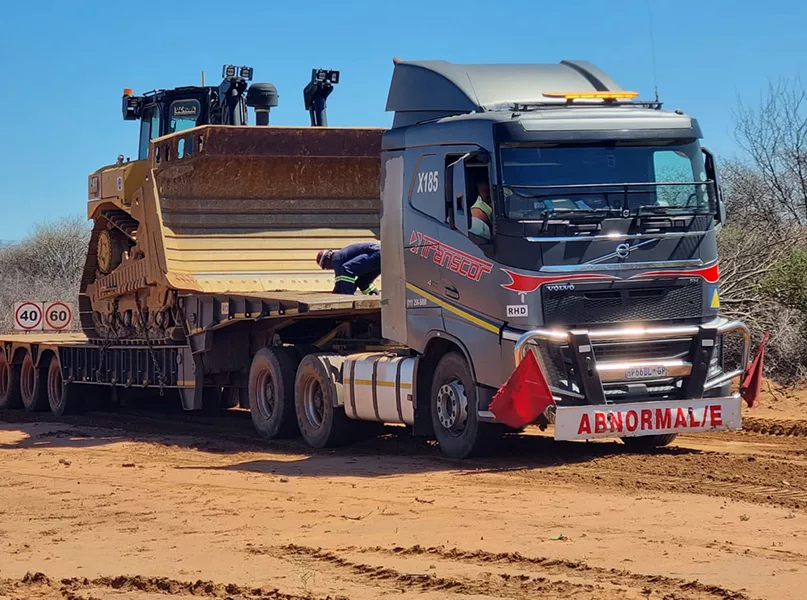
A CHALLENGING PROCESS
Maatla was founded in 2016 after acquiring 85 percent of a prospecting license in the final part of a second renewal that was about to expire.
The original licence owners will remain 15 percent shareholders on a free-carry principle within the company until the Mmamabula coal mine is established and production commences.
The majority shareholders and development team have extensive experience in the mining industry, having developed numerous projects. Thus, they have systematically used their knowledge and funds to progress the site to its current state.
Until 2018, the completed processes included a Competent Persons Report (CPR), EIA approval, surface rights acquisition, feasibility study, and mining license application.
“While developing the coal project, we encountered several challenges, such as securing financing and dealing with the prevailing negative sentiment towards fossil fuels.
“We explored different funding options, including original equipment manufacturers (OEMs), mining contractors, and pre-offtake funding from commodity traders. However, we were unable to find anyone willing to take on the equity at the time,” Badenhorst reveals.
The delay in approving and issuing the mining license under Section 39 of Botswana’s Mines and Minerals Act was due to the requirement of a 1:3 equity-to-debt ratio on the project implementation capital expenditure (CapEx).
This, combined with the challenges posed by the COVID-19 pandemic, made the process difficult. However, despite these obstacles, the team remained committed to the project and its principles.
“In the pursuit of fairness, a South African Mineral Asset Valuation (SAMVAL) was conducted, leading Maatla to secure its current majority shareholder, HMS Bergbau AG. As a result, in 2021, an appropriate equity partner and commodity trader with a global presence formed part of the team and our mining license approval,” reports Badenhorst.
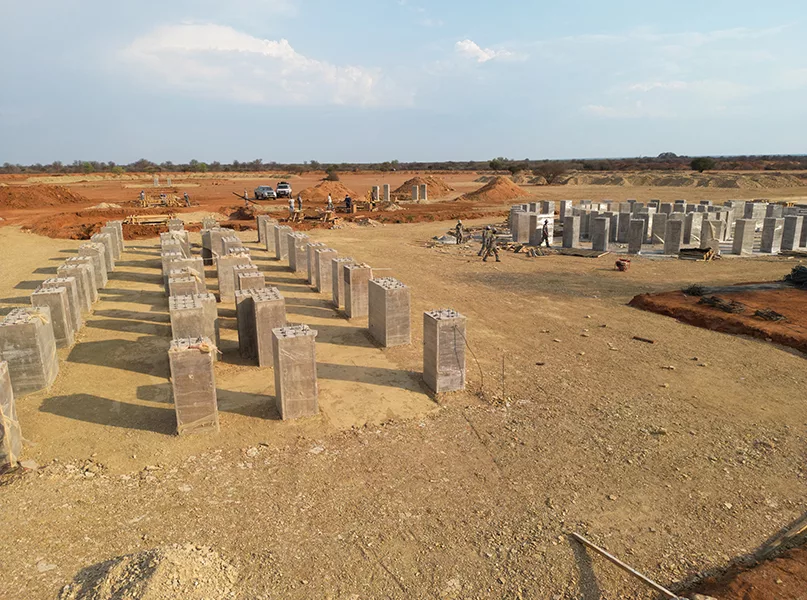
THE MAATLA MINING MAP
Maatla’s mining license encompasses three areas – A, B, and C – with the first area being the initial development site. With construction activities underway, the company is on track to begin its initial production in Q2 2025.
“Area A is conveniently situated near the village of Mookane and 20 kilometres (km) from the A1 main road corridor between Gaborone and Francis Town. Area B is near the village of Mpashalala, and Area C is close to Dovedale village and 30km from the Stockport border post,” Badenhorst outlines.
Furthermore, Mookane Coal, a company registered in Botswana, oversees construction and mine development activities and is a shareholder in Maatla.
“Mookane Coal uses Botswana citizen-owned companies as subcontractors to perform a significant portion of the engineering, procurement, and construction management (EPCM) work.
“We have appointed Trollope Mining as the contractor, and the company has a site established with a small interim team to commence with the box-cut and supply suitable material for backfilling into the processing plant area as well as the run-of-mine (ROM) ramp and wing wall.”
Throughout the construction phase, the number of individuals on-site will fluctuate between 50 and 150. During the first six months of planned ramp-up activities, the workforce will exceed 270; in a steady-state operational phase, this number will rise to over 420.
“As part of the preparations for construction, Maatla completed in-fill drilling activities in Area A. This resulted in the discovery of additional measured coal resources and confirmed specific qualities of the coal, such as low ash and phosphorus, which will yield a premium in certain markets. Additionally, the D1 and M2 seams planned to be mined also exhibit charring characteristics,” enlightens Badenhorst.
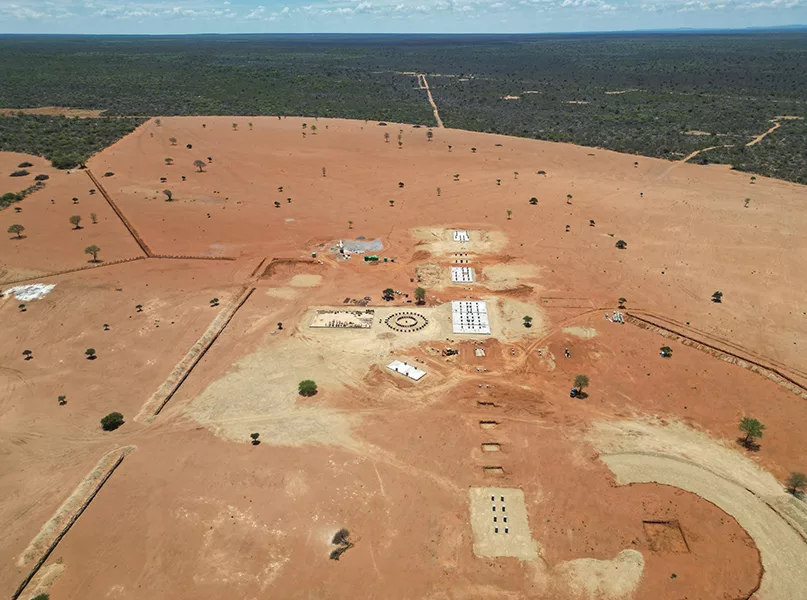
QUALITY AND PEOPLE FIRST
The company used data from its exploration activities to ensure that specific markets are targeted, and reliable and consistent-quality coal will be supplied as a ‘Maatla-branded product’.
“Our commitment to providing a first-rate product is evident in our approach to the design of our processing plant and our versatility in delivering different specifications and sizing for various clients.
“This impacted planning which areas within the opencast mines and coal seams should be targeted first to ensure quality is achieved at the highest possible yield and lowest mining cost,” Badenhorst explains.
The development strategy is focused on distinguishing ‘Maatla-branded’ coal by concentrating on quality advantages such as low ash and low phosphorus products.
“The charring characteristics of our coal will allow us to collaborate with a local company for upwards of 20 to 25 percent of Maatla’s washed sized coal products destined for the charring facility, partaking in a symbiotic relationship where we enjoy a sustainable local market for some of its sized coal production.
“In addition, the company will benefit from secure green power that will be generated from the excess heat from the charring process in an Organic Rankine Cycle (ORC) plant,” he details.
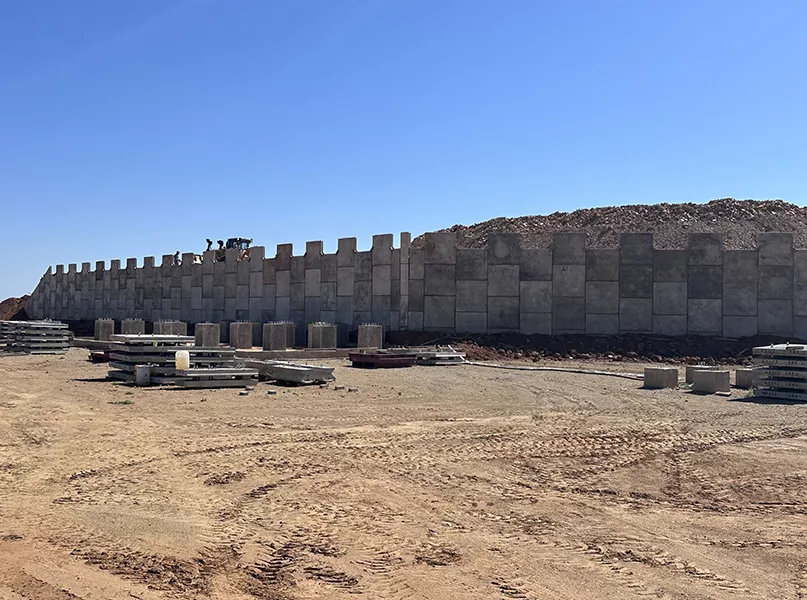
Not only is Maatla dedicated to producing quality coal, but the company will also create more than 420 permanent job opportunities for people in the local communities of Mookane, Mpashalala, Dibete, and Dovedale in the future.
This will lead to the development of primary and secondary industries in the area, resulting in significant employment prospects.
“This is complemented by our neighbour, Jindal Botswana, who is developing a 300 megawatt (MW) coal-based power station that will also create more than 1,000 permanent jobs,” Badenhorst divulges.
The impact of coal mining on Botswana’s communities will be significant, and Maatla is looking forward to witnessing the positive effects.
“Unfortunately, the Western world controls the narrative through banking and financing systems, making securing funding for new coal projects difficult.
Unlike traditional bankers and financiers, Maatla considers environmental, social, and governance (ESG) aspects.
“We strongly believe that coal will continue to play a vital role in the energy and industrial sectors. Developing a project in this area will benefit the communities around Maatla and contribute to Botswana’s Vision 2036. This will help alleviate poverty, transform the country into a knowledge-based economy, and support its growth targets as a developing nation,” he prides.
Moreover, the company’s pipeline of downstream projects will undoubtedly strengthen the business case for the Mmamabula coal mine and further contribute to sustainable employment in the area.
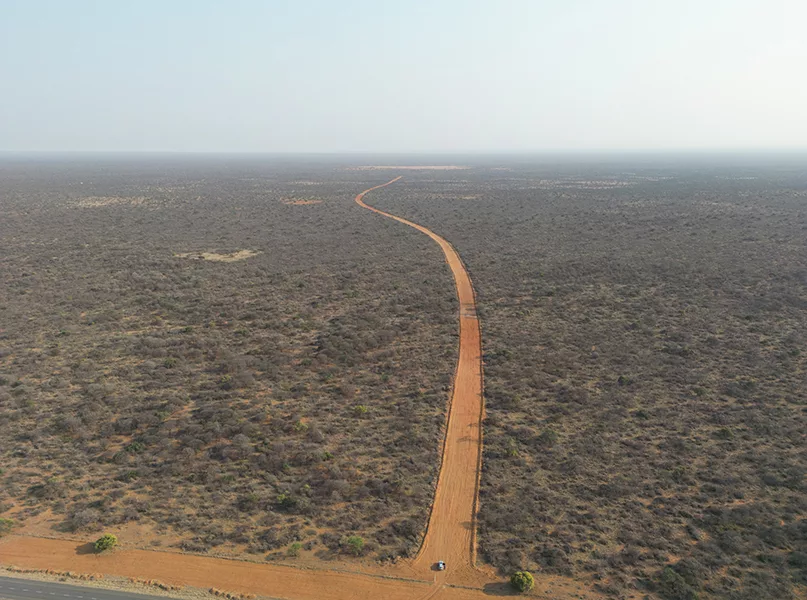
A SUSTAINABLE SUPPLY
The Earth is currently in the Anthropocene age because humans have become the most influential species, causing significant global warming and other changes to the land.
Therefore, responsible mining practices are essential to Maatla, whilst environmental monitoring is necessary for any experienced mining company to ensure minimal impact.
However, Badenhorst thinks the narrative created by the developed world that coal and fossil fuels are ‘dirty’ and should be eradicated at all costs is extremely dangerous.
With this in mind, Maatla aims to grow into a responsible mid-tier coal and energy company that is strongly focused on not only being recognised as a coal miner but also as an innovator, utilising existing technology and participating in downstream projects that will propel sustainability, echoing Botswana’s export-driven and diversified mining economy.
“They are playing with lives as people are less impoverished than they were a century ago, and the reason for this is due to the energy that was used to develop countries, build infrastructure, and create healthy societies. This was achieved on the back of affordable and abundant energy sources such as coal,” he voices.
Badenhorst believes that eradicating coal or fossil fuels as a reliable and cost-effective base load source of energy and replacing it with highly subsidised, expensive solar and wind power, without even considering their true environmental impact and carbon footprint, will increase poverty in developing countries.
“As the global population continues to grow and more people require electricity, there is a greater need for alternative energy sources. The idea that we should completely transition away from fossil fuels and replace them with renewable power is not a practical model.
“You need a diverse energy mix in the future, incorporating new generation capacity such as nuclear, solar, wind, hydro, and clean coal technology, rather than simply replacing existing fossil fuels with renewables,” Badenhorst expresses.
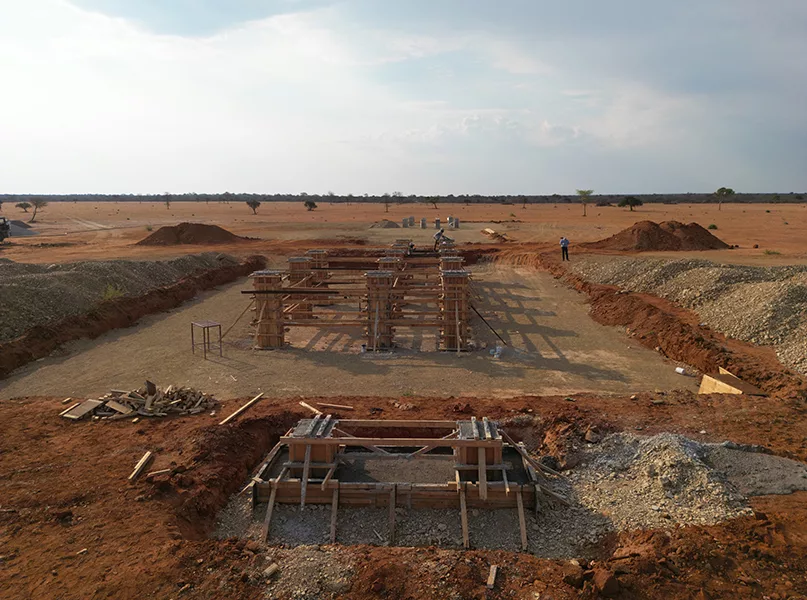
PLANNING AHEAD
Maatla is currently collaborating with technology partners and strategic companies on two downstream projects.
These will enhance the company’s sustainability, carbon footprint, competitiveness, shareholder returns, and social impact in Botswana.
“One project is at the feasibility level, while the other is at the pre-feasibility level. We also understand that logistics play a crucial role in getting the product to market, and we need to find innovative solutions to ensure our clients receive their branded product on time and at a competitive price,” insights Badenhorst.
Additionally, the company has been instrumental in collaborating with other stakeholders over the past few years to advocate for the Mmamabula to Lephalale rail link.
This will provide freight owners in Botswana with a logistical solution for accessing both the sea-borne export and regional markets. The proposed railway will pass through Maatla’s mining license area and cross the Limpopo River into South Africa.
“The realisation of the rail link will enable Maatla to develop our secondary mine earlier than anticipated. This will create obvious employment, export, and supply chain opportunities for local businesses.”
Moreover, construction activities are progressing well for Maatla, and the company is confident it will begin to ramp-up production in Q2 2025.
“We will have day shift operations for the first six months of production to ensure sufficient pit room in the mine and facilitate personnel training. Our focus is on hiring from local communities before transitioning to a 24/7 operation.
“We intend to produce over 50,000 tonnes per month (tpm) of saleable coal product during the initial six months of operation, before increasing to to over 100,000 tpm. The processing plant will be operated at 80 percent of its nameplate capacity within a 24/7 operational cycle, allowing for additional tonnages to be processed and minimising the impact of unplanned stoppages,” Badenhorst concludes.
As Maatla’s plans continue to unfold, driven by its unwavering dedication to producing high-grade coal and its ambitious development goals to ensure a stable energy supply for the future, it will be a rewarding story of progress for both the company and Botswana.
MAATLA RESOURCES PARTNER




